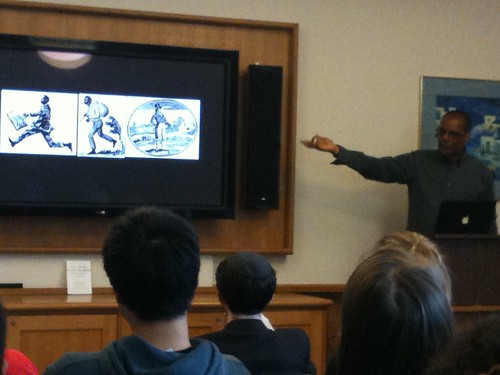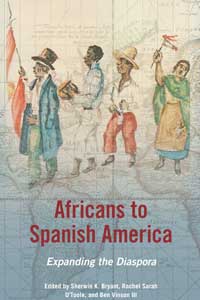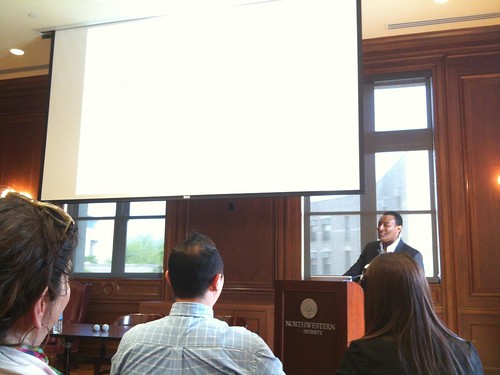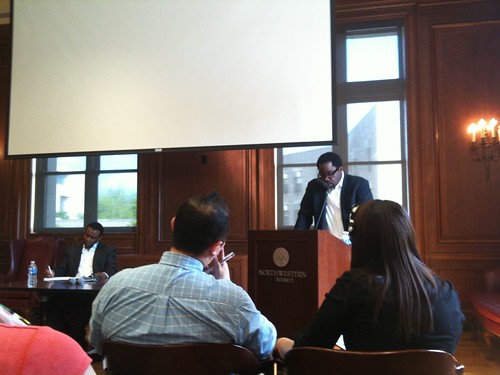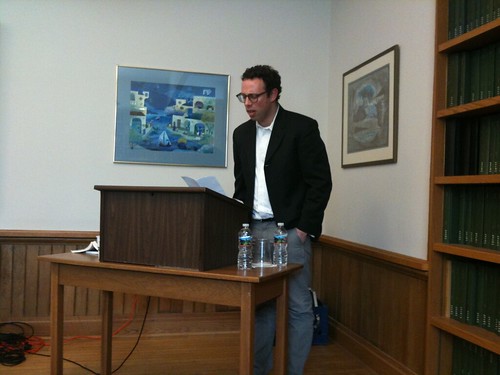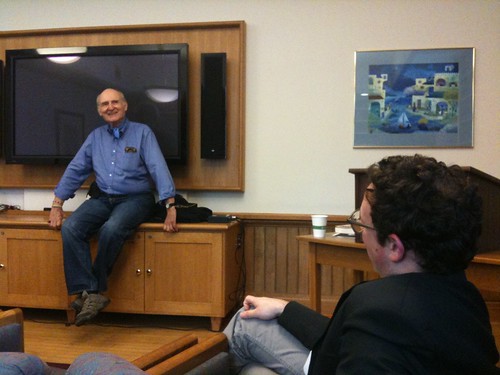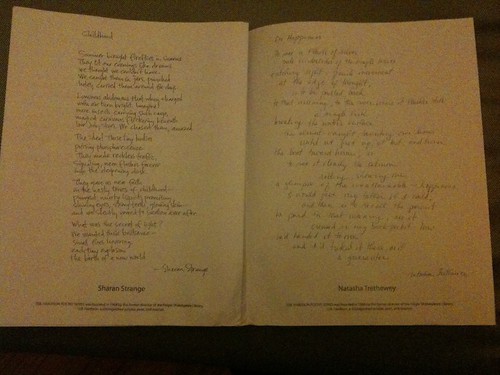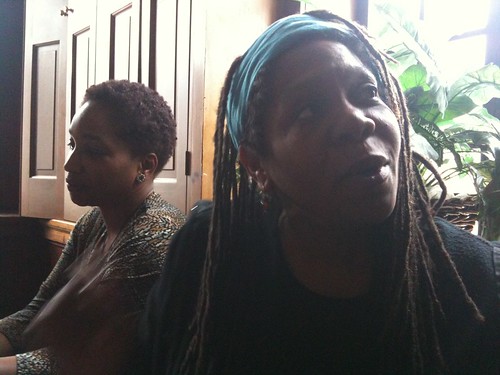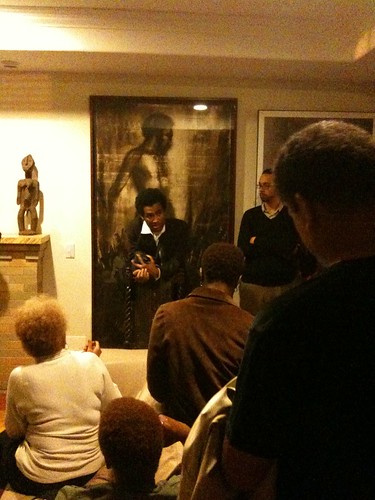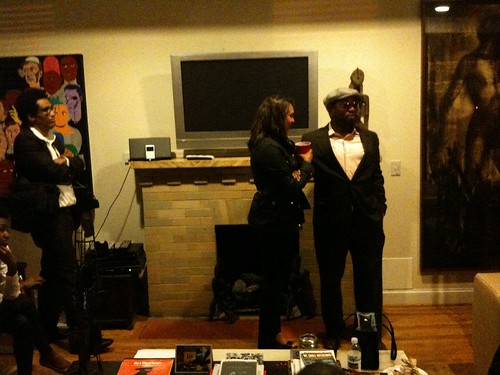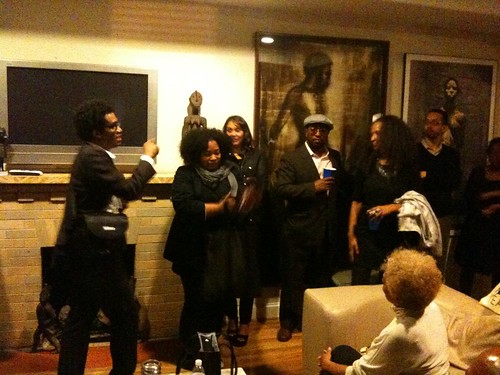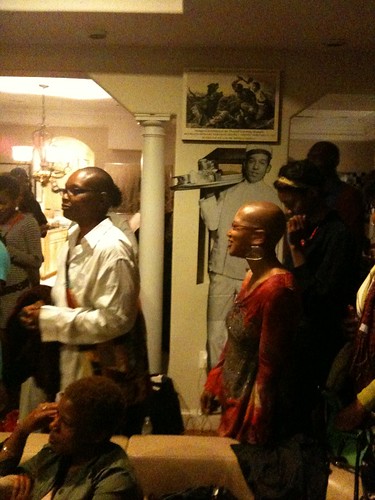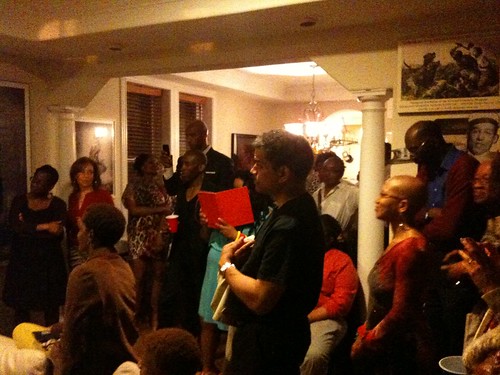I often forget to post little things I've done or have been up to, but: the online (and print) journal Drunken Boat has published my review of two delightful books, Jorge Carrera Andrade's Micrograms (Wave Books, 2011), and Rosmarie Waldrop's Driven to Abstraction (New Directions, 2010). The reviews editor, poet Shira Dentz, also asked last fall for five books I'm reading, so I imagine that'll post at some point soon. I'll just add that that I had no idea how important Carrera Andrade was to the history of 20th century Latin American letters, but it turns out he's a big deal, and Micrograms, translated by Alejandro Acosta and Joshua Beckman, is a superb introduction to his work.
+++
For a variety of reasons, not least because I am an affiliate faculty member of Northwestern University's extraordinary African American Studies Department and feel so close to its faculty and students I almost could not compose a calm response, I have held back on commenting on the vicious, ignorant, racist attack, in the pages of the Chronicle of Higher Education, on the dissertations of brilliant graduate students Ruth Hays, Keeanga-Yahmatta Taylor, and LaTasha Levy. Nevertheless a number of friends contacted me and pressed me to respond. As is widely known now, the attack followed a glowing piece, "Black Studies: Swaggering Into the Future," by Stacy Patton, which coincided with a conference, "A Beautiful Struggle: Transforming Black Studies in Shifting Political Landscapes--A Summit of Doctoral Programs," held at Northwestern on April 12-14, 2012, sponsored by Northwestern's African American Studies Department in conjunction with the Northwestern Graduate School. The packed conference brought together faculty, students and staff from the small number of American universities that offer Ph.D.-level studies in African American and African/Africana/Black Studies.
The conference was superlative, and brought people from all over the US. As my former dean, the distinguished sociologist Aldon Morris, told me with elation filling his smile, the Chronicle had positively written up and even used the word "swagger" to describe African American Studies, underling what many across academe acknowledged, that it was now a mature and vibrant field. It is. Then came the hatchet job, NOT on faculty members--that would not be unexpected--but on vulnerable GRADUATE STUDENTS, and not only did the hack show utter disdain for the entire field, but she mocked these students' work without ever reading a single page of their dissertations, of any papers they'd written, of anything by them. She not only knew nothing about them or their work, but made clear that she didn't care to.
Many people have responded with eloquence to this attack, not least among them these students, who are so smart and impressive I cannot but praise them. But one thing I also noticed that was a few people who supported these students and Black Studies chose, in response, to pick other fields to ridicule. A prominent black blogger and pundit whose work I greatly admire decided to start signifying on Twitter about medieval studies. I responded to him, but I had earlier responded to friends who, in a private email, questioned whether there weren't works in other fields that could not be denounced as obscure, and so forth. In response I wrote the following, which I have adapted slightly to remove the names of the people I was responding to, but I think it expresses my thoughts about both the racist hack, and the larger game she was engaging in, which I wish people would try to keep in mind. It's not just about Black Studies, or these wonderful graduate students, who to this lazy, hateful hack were ready targets.
My note:
The vital work that humanities scholars and social scientists do, alongside that of artists of all kinds, is vital for the production of human knowledge and the survival of human societies. There are many out there who have little desire for this vital work to continue; they know that the more ignorant most people are, the great the power they, the powerful, can wield. The hack who penned that Chronicle attack is on the payroll of these folks; we shouldn't ever forget that, or the danger that they pose. It's not about to disappear anytime soon.
+++
For a variety of reasons, not least because I am an affiliate faculty member of Northwestern University's extraordinary African American Studies Department and feel so close to its faculty and students I almost could not compose a calm response, I have held back on commenting on the vicious, ignorant, racist attack, in the pages of the Chronicle of Higher Education, on the dissertations of brilliant graduate students Ruth Hays, Keeanga-Yahmatta Taylor, and LaTasha Levy. Nevertheless a number of friends contacted me and pressed me to respond. As is widely known now, the attack followed a glowing piece, "Black Studies: Swaggering Into the Future," by Stacy Patton, which coincided with a conference, "A Beautiful Struggle: Transforming Black Studies in Shifting Political Landscapes--A Summit of Doctoral Programs," held at Northwestern on April 12-14, 2012, sponsored by Northwestern's African American Studies Department in conjunction with the Northwestern Graduate School. The packed conference brought together faculty, students and staff from the small number of American universities that offer Ph.D.-level studies in African American and African/Africana/Black Studies.
The conference was superlative, and brought people from all over the US. As my former dean, the distinguished sociologist Aldon Morris, told me with elation filling his smile, the Chronicle had positively written up and even used the word "swagger" to describe African American Studies, underling what many across academe acknowledged, that it was now a mature and vibrant field. It is. Then came the hatchet job, NOT on faculty members--that would not be unexpected--but on vulnerable GRADUATE STUDENTS, and not only did the hack show utter disdain for the entire field, but she mocked these students' work without ever reading a single page of their dissertations, of any papers they'd written, of anything by them. She not only knew nothing about them or their work, but made clear that she didn't care to.
Many people have responded with eloquence to this attack, not least among them these students, who are so smart and impressive I cannot but praise them. But one thing I also noticed that was a few people who supported these students and Black Studies chose, in response, to pick other fields to ridicule. A prominent black blogger and pundit whose work I greatly admire decided to start signifying on Twitter about medieval studies. I responded to him, but I had earlier responded to friends who, in a private email, questioned whether there weren't works in other fields that could not be denounced as obscure, and so forth. In response I wrote the following, which I have adapted slightly to remove the names of the people I was responding to, but I think it expresses my thoughts about both the racist hack, and the larger game she was engaging in, which I wish people would try to keep in mind. It's not just about Black Studies, or these wonderful graduate students, who to this lazy, hateful hack were ready targets.
My note:
Yes to everything you, ___, and you, ___, and everyone who has spoken on behalf of Ruth, Keeanga-Yahmatta and LaTasha, and Black Studies (and Ethnic and Women's and Gender and Queer Studies), have said. This is a battle both inside and outside academe, it's ongoing and we're hardly post-ANYTHING, racism and white supremacy rear their heads daily, and people like Naomi Schaefer Riley, in their gross ignorance, do speak for many, but we can never let them have the last word.As colleagues across the country will attest, the humanities, the social sciences, and the arts, at all levels, but especially at public institutions, are under attack. Attacking graduate students in African American Studies was a no-brainer for this person, and the Chronicle knew exactly what they were doing (yes, the journal fired the hack and its editor issued an the apology for the hack's journalistic malfeasance) in allowing her to hack away. But we should all always keep in mind that similar attacks have been launched against ethnic studies in general and in specific (cf. the ban on Latino/a Studies in Arizona), on women's studies, on gender studies, on LBGBQ/queer studies (think of all the snark about queer studies papers at past MLA conferences, etc.), but alsothe most traditional fields in the humanities and social sciences, as well as the arts.
One of the things we should always consider is the larger political economy in which such hateful rhetoric emerges, how it aims to shape the public and private discourse, how its insidiousness feeds into long-standing and continuing discourses that then erupt as political agendas and platforms, and public policies, that are always incredibly and disparately harmful to people of color, especially Black people; to women; to sexual and religious minorities and dissidents; to working-class and poor people; and so forth.
For every Naomi Schaefer Riley spewing this crap, there are hundreds of people working very hard to enact the empty beliefs and values, if they can be called that, behind what she's saying. And these enactors work in multiple ways, often in seemingly benign ones. So we should stand with these three brilliant graduate students and with everyone working in Black Studies and similar fields, but we should also not lose sight of the larger picture, which is that we are still in a pitched battle, and it's not about to end anytime soon, no matter how much many people want to hoodwink or lull us into thinking it will.
The vital work that humanities scholars and social scientists do, alongside that of artists of all kinds, is vital for the production of human knowledge and the survival of human societies. There are many out there who have little desire for this vital work to continue; they know that the more ignorant most people are, the great the power they, the powerful, can wield. The hack who penned that Chronicle attack is on the payroll of these folks; we shouldn't ever forget that, or the danger that they pose. It's not about to disappear anytime soon.







